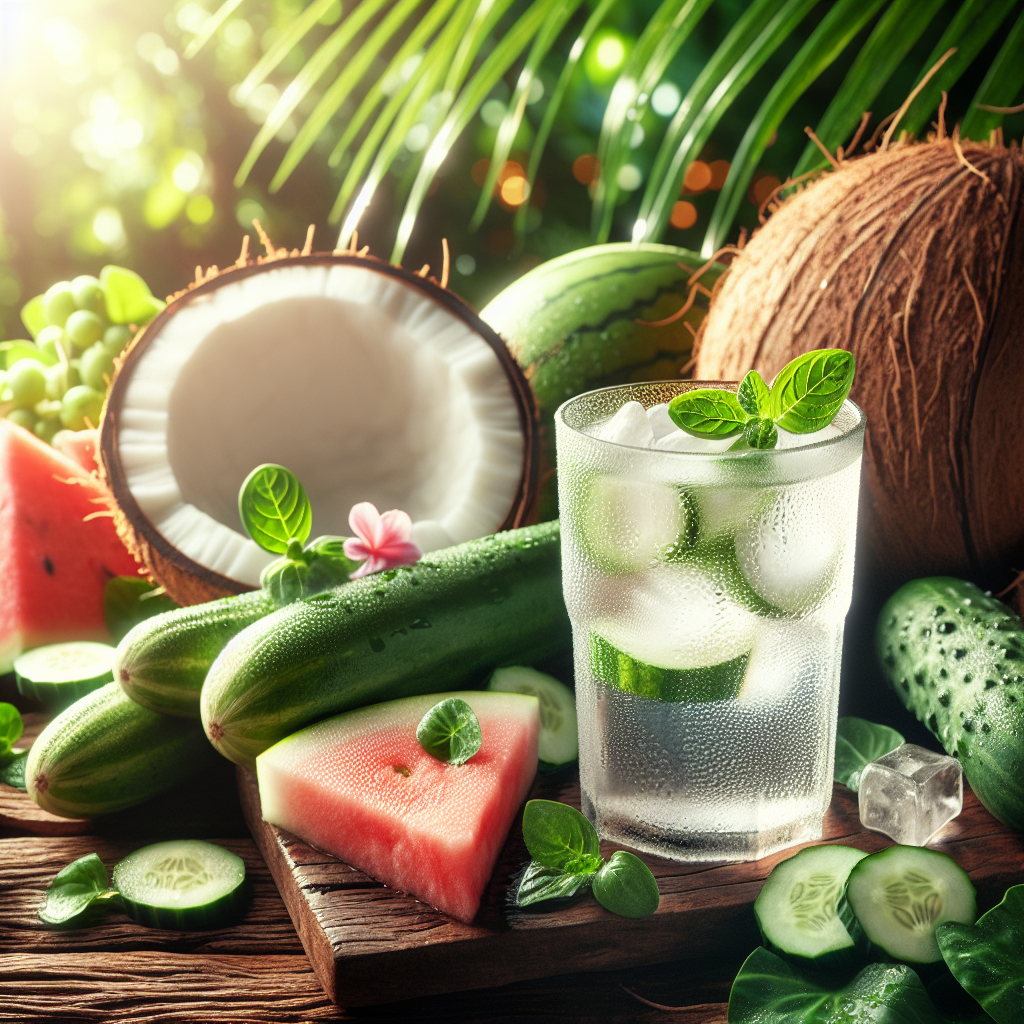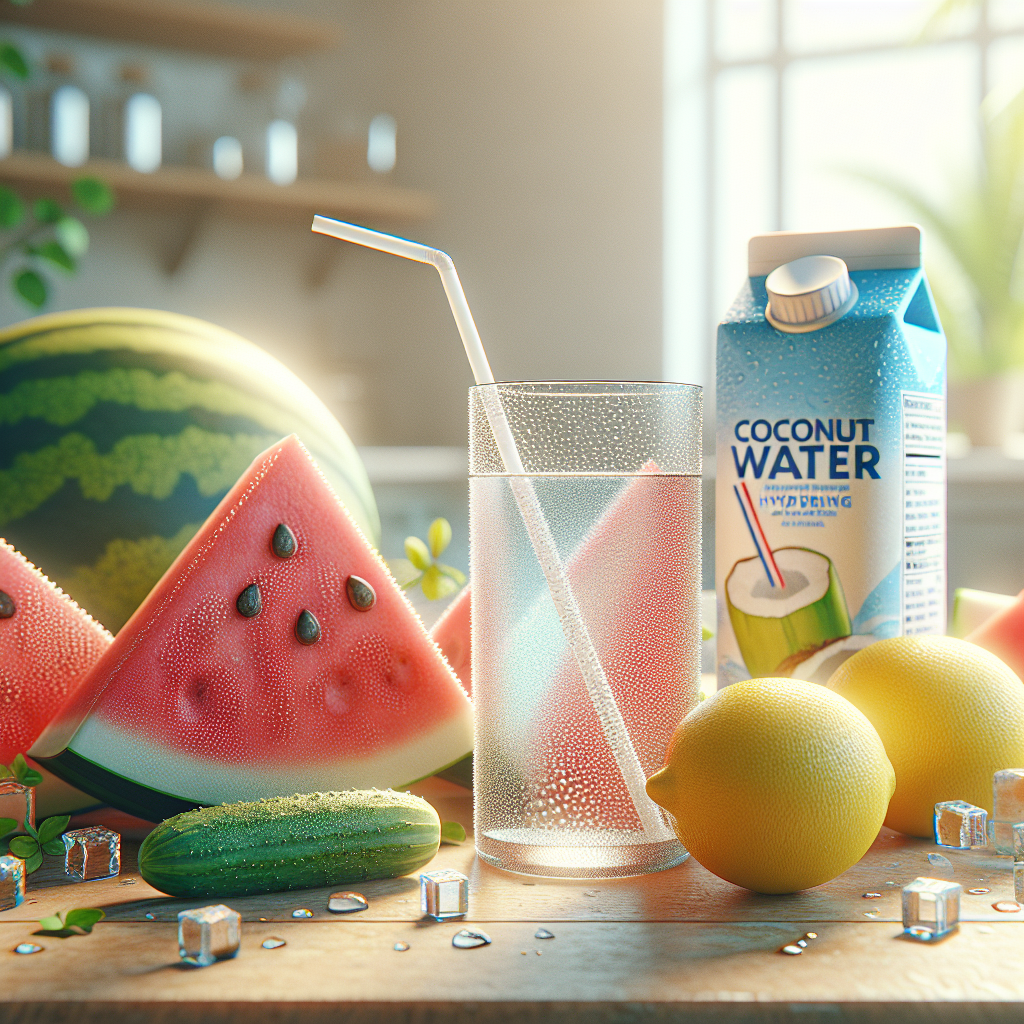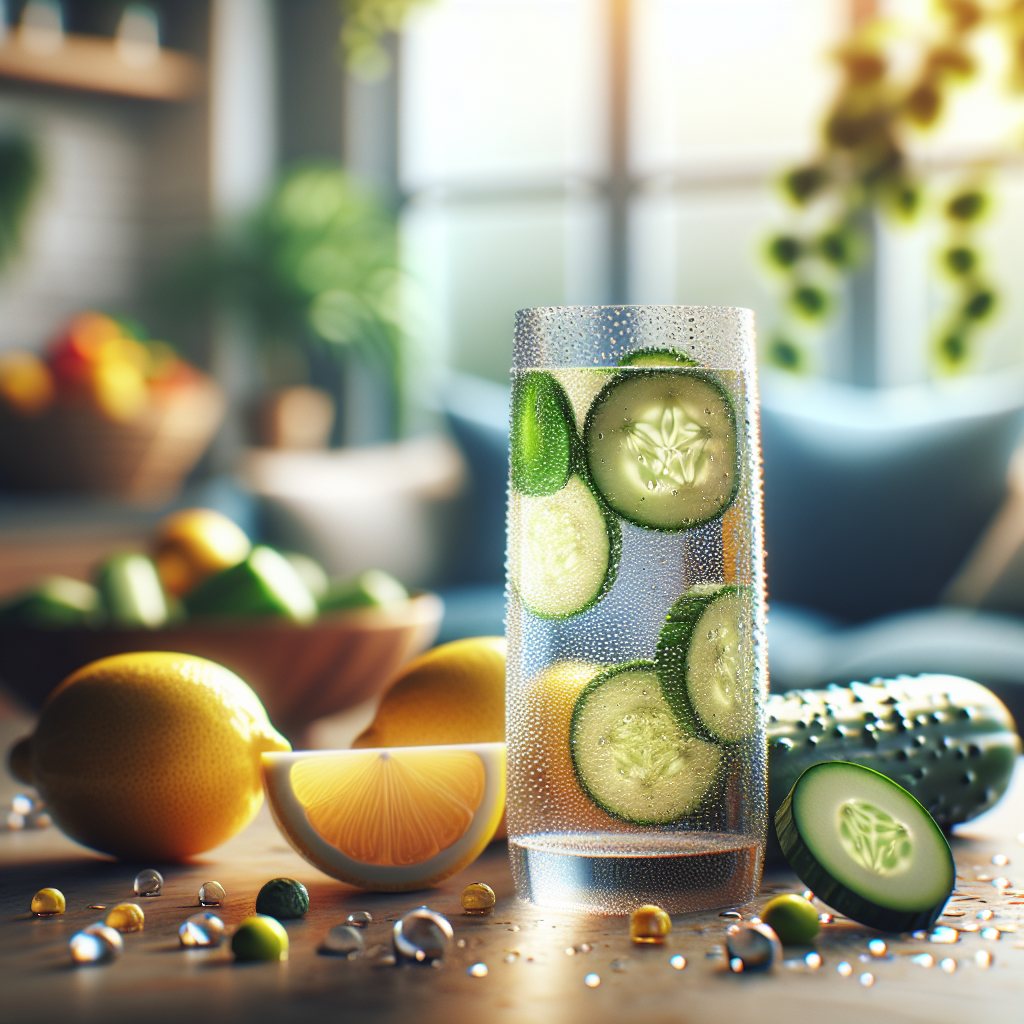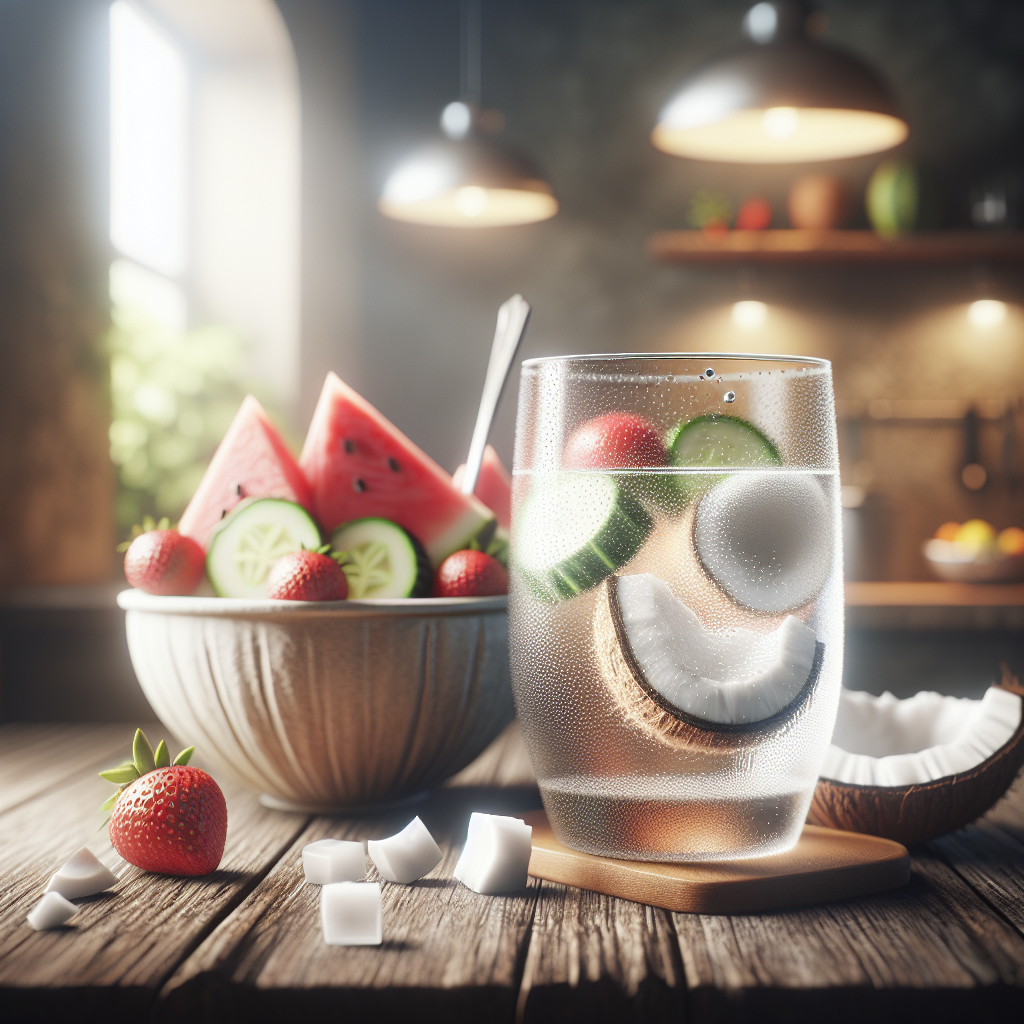Hydration for Hangovers: Your Ultimate Recovery Guide!
When it comes to experiencing a hangover, understanding the underlying mechanisms and the crucial role of hydration for hangovers is essential. Hangovers occur as a result of various factors, including dehydration, the presence of toxins in alcohol, and the depletion of vital nutrients in the body.
Alcohol acts as a diuretic, which means it increases urine production and leads to significant fluid loss. This dehydration can contribute to common hangover symptoms, such as:
- Thirst and dry mouth
- Headaches
- Dizziness
- Fatigue
To combat these effects, it’s vital to replenish lost fluids and electrolytes. Drinking water and consuming electrolyte-rich beverages like coconut water or sports drinks can help restore balance to your system. Additionally, incorporating foods high in water content, such as fruits and vegetables, can further support hydration.
Another critical aspect to consider is the importance of vitamins. Alcohol consumption can deplete essential nutrients, particularly Vitamin B1 (Thiamine), which plays a significant role in energy metabolism and neurological function. Ensuring adequate vitamin intake before and after drinking can enhance your recovery process.
Cure the Hangover before it happens! By using innovative solutions like the Booze Bandage hangover patch, you can proactively replenish your body's hydration and vitamin levels, ensuring you feel great the next day.
Essential Hydration Tips for Hangover Recovery

Recovering from a hangover often hinges on effective hydration strategies. Implementing the right tips can significantly alleviate symptoms and expedite recovery. Here are some essential hydration tips for hangover recovery:
- Start with Water: As soon as you wake up, drink a large glass of water to rehydrate your body. Aim for at least 8-10 ounces to kickstart your recovery.
- Incorporate Electrolytes: Replace lost electrolytes by consuming sports drinks, coconut water, or electrolyte tablets. These options can help restore sodium and potassium levels, which are vital for proper hydration.
- Consume Hydrating Foods: Eat fruits and vegetables with high water content, such as watermelon, cucumbers, and oranges. These can provide both hydration and essential vitamins to aid recovery.
- Avoid Caffeine: While a cup of coffee may seem tempting, caffeine can further dehydrate you. Opt for herbal teas or caffeine-free alternatives until you're fully rehydrated.
- Drink Clear Broths: Consuming broth-based soups can help replenish fluids and provide nutrients that your body craves after a night of drinking.
By following these hydration tips, you can significantly enhance your recovery process and minimize the discomfort associated with hangovers. Prioritizing hydration not only helps alleviate symptoms but also supports overall wellness, allowing you to bounce back more quickly.
Best Hydration Drinks for Hangover Relief
When it comes to hangover relief, the right drinks can make all the difference. Staying hydrated is crucial, and certain beverages are particularly effective at replenishing lost fluids and nutrients. Here are some of the best hydration drinks for hangover relief:
- Coconut Water: Known as nature's sports drink, coconut water is rich in electrolytes like potassium and magnesium. It offers a refreshing taste while effectively rehydrating your body.
- Sports Drinks: These drinks are formulated to replace lost electrolytes and fluids. Look for options that are low in sugar but high in sodium and potassium to maximize their hydrating benefits.
- Herbal Teas: Herbal teas, such as ginger or peppermint, can be soothing to the stomach while providing hydration. They also offer anti-inflammatory properties that may help alleviate hangover symptoms.
- Electrolyte Solutions: Products like Pedialyte or electrolyte powders can be mixed with water to create a powerful rehydration solution. These are particularly helpful if you've experienced significant fluid loss.
- Fresh Fruit Juices: Juices from fruits like orange, watermelon, or pineapple provide hydration along with essential vitamins and minerals. However, be mindful of the sugar content and consider diluting with water.
Incorporating these hydration drinks into your recovery plan can help you bounce back faster from a hangover. Not only do they replenish lost fluids, but they also provide the nutrients necessary for your body to recover efficiently.
How Hydration Affects Hangover Symptoms

Understanding the relationship between hydration and hangover symptoms is essential for effective recovery. When you consume alcohol, it acts as a diuretic, causing your body to lose fluids more rapidly than usual. This dehydration can result in a range of unpleasant symptoms, including:
- Headaches: Dehydration can lead to reduced blood flow and oxygen to the brain, triggering painful headaches that are often associated with hangovers.
- Fatigue: A lack of hydration can make you feel sluggish and exhausted, intensifying the fatigue often experienced after a night of drinking.
- Dizziness: Low fluid levels can cause dizziness and lightheadedness, making it difficult to focus or even stand up straight.
- Nausea: Dehydration can exacerbate feelings of nausea, making it harder for your body to process alcohol and recover from its effects.
- Mood Changes: Dehydration can impact your mood, leading to irritability or anxiety, which can compound the discomfort of a hangover.
By maintaining proper hydration levels before, during, and after alcohol consumption, you can significantly mitigate these symptoms. Drinking water or electrolyte-rich beverages can help replenish lost fluids and restore balance to your body, reducing the severity of hangover effects.
Moreover, incorporating hydration strategies into your routine can improve your overall well-being and resilience against future hangovers. A proactive approach to hydration not only aids in recovery but also enhances your drinking experience.
Hydration Strategies Before and After Drinking

Implementing effective hydration strategies before and after drinking is vital for minimizing hangover symptoms and ensuring a smoother recovery. Here are some practical tips to keep in mind:
- Pre-hydration: Before you start drinking, it's essential to hydrate your body. Aim to drink at least 16-20 ounces of water a few hours before consuming alcohol. This can help prepare your system for the dehydrating effects of alcohol.
- Alternate Drinks: During your drinking session, make it a habit to alternate between alcoholic beverages and water. This strategy not only helps to keep you hydrated but also slows down your alcohol consumption, allowing your body more time to process the alcohol.
- Choose Hydrating Beverages: Opt for drinks that contain high water content, such as light beers or cocktails made with soda water. Avoid sugary cocktails as they can lead to increased dehydration.
- Post-drinking Hydration: After your last drink, commit to consuming at least 16 ounces of water before going to bed. This can help counteract the dehydration that occurs overnight and support your body’s recovery processes.
- Replenish Electrolytes: Consider incorporating electrolyte-rich drinks, such as coconut water or sports drinks, post-drinking. These can help restore essential minerals lost through dehydration.
By adopting these hydration strategies, you can significantly reduce the likelihood of experiencing severe hangover symptoms. Staying proactive about your hydration needs will not only enhance your enjoyment during social occasions but also promote overall wellness.
Incorporating Hydration into Your Hangover Prevention

Integrating hydration into your hangover prevention routine is crucial for maintaining optimal wellness, especially if you enjoy socializing over drinks. Hydration is not just a remedy; it's a proactive approach to minimizing the negative effects of alcohol.
To effectively incorporate hydration into your hangover prevention strategy, consider the following:
- Set a Hydration Goal: Aim to drink at least 64 ounces of water daily, increasing your intake on days when you plan to consume alcohol. This will help ensure that your body is well-hydrated before you even take your first sip.
- Use Reminders: Set reminders on your phone or use apps to track your water intake. Consistent hydration throughout the day will help you avoid the temptation to neglect it when engaging in social activities.
- Hydration Patches: Consider using hydration patches or supplements that can assist in replenishing essential vitamins and minerals. For example, our innovative Booze Bandage can deliver crucial Vitamin B1 (Thiamine) to help your body recover and feel better the next day.
- Meal Planning: Incorporate hydrating foods into your meals, such as fruits and vegetables with high water content. Foods like watermelon, cucumbers, and oranges can naturally boost your hydration levels.
- Stay Aware: Pay attention to your body’s signals. If you feel thirsty, it’s already a sign of dehydration. Make it a habit to drink water regularly, even if you don’t feel thirsty.
By prioritizing hydration as part of your hangover prevention plan, you will not only enhance your drinking experience but also safeguard your health. Cure the hangover before it happens!
